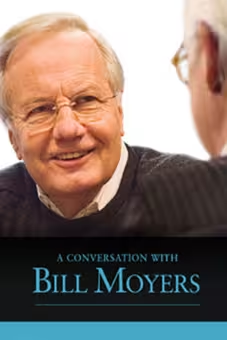The Public Life Project
Public Life Starts Here
Special | 2mVideo has Closed Captions
How University of Minnesota faculty and students understand division and polarization
We are living in a divided America, and the University of Minnesota College of Liberal Arts is a microcosm of broader society. Faculty and students alike experience difference, division, and polarization. Here’s how they are trying to understand and grapple with society’s most challenging questions through academic engagement, social interaction, and exchange.
Problems playing video? | Closed Captioning Feedback
Problems playing video? | Closed Captioning Feedback
The Public Life Project is a local public television program presented by TPT
The Public Life Project
Public Life Starts Here
Special | 2mVideo has Closed Captions
We are living in a divided America, and the University of Minnesota College of Liberal Arts is a microcosm of broader society. Faculty and students alike experience difference, division, and polarization. Here’s how they are trying to understand and grapple with society’s most challenging questions through academic engagement, social interaction, and exchange.
Problems playing video? | Closed Captioning Feedback
How to Watch The Public Life Project
The Public Life Project is available to stream on pbs.org and the free PBS App, available on iPhone, Apple TV, Android TV, Android smartphones, Amazon Fire TV, Amazon Fire Tablet, Roku, Samsung Smart TV, and Vizio.
(bright music) - [Man] I do think America's divided.
We have evidence of increasing partisan polarization in the political arena, and we've seen increase in protests that I think is an indication of people feeling like they don't have voice within the normal democratic process.
- America's a very divided country.
- We have Democrats and Republicans.
- Denial or nihilism.
- We're a country of diverse people so we're bound to be divided.
- We've been divided from the start.
- I would caution against being fearful of polarizations, evidence that we're actually talking.
- When we disagree, the people that we disagree with have their reasons.
And it's incumbent upon us to understand what those reasons are.
- That's what true diversity is, to have tolerance.
But I think it's a very tricky line between what we tolerate and what we don't tolerate.
- We are such an individualist kind of people that I think we're actually pretty tolerant of individuals from a lot of different backgrounds.
But when we start thinking in group terms, collections of people who are bigger than us or are different from us, that's harder for a lot of Americans to process.
- Educating people on the alternatives.
And once people know that there are better alternatives, they at least have the option.
- We need to learn how to assess our views and our opinions.
But I think it's also important to teach students how to assess information.
- I really don't believe we need to have a consensus always.
- Liberal Arts provides a space for us to think imaginatively and creatively past the differences that divide us.
- The right policies hopefully then just flow naturally from having a better understanding of how the world works.
- When we think of each other, we do so much more.
And for me, that's what my education here at the University of Minnesota has been about.
(upbeat music) - [Narrator] Funding for this content is provided by.
(upbeat music)
Support for PBS provided by:
The Public Life Project is a local public television program presented by TPT











